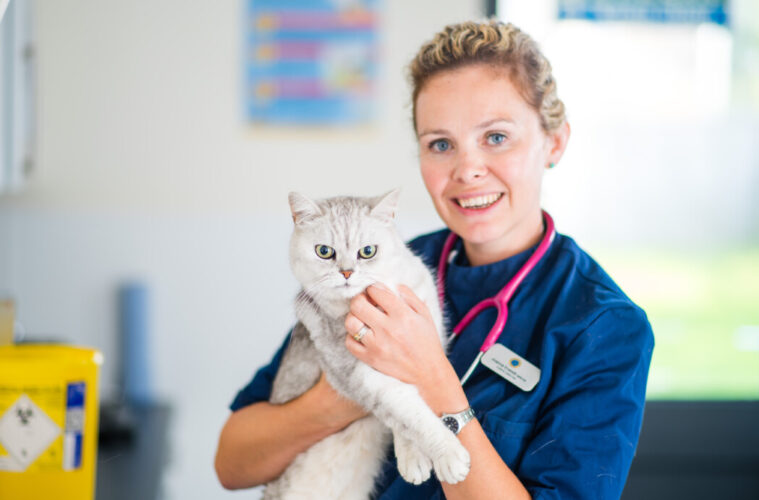Joanna Everett MRCVS, Clinical Director at the Bath Vet Group, offers expert advice on dogs, cats and hamsters
How often do I need to bathe my cocker spaniel?
There is no exact bathing recommendation that will apply to every single dog. If yours is a typical, highly active spaniel that spends a lot of time outside, especially if they regularly swim or exercise in muddy fields, they’ll probably need a bath more often than a short coated, small breed exercised mainly on pavement or in parks. Generally, I would advise bathing around monthly unless he/ she is noticeably dirty or smelly. Dogs have sensitive skin and bathing too often can dry out their coat and cause skin irritation, so only use specially formulated dog shampoos or a mild baby shampoo and rinse thoroughly.
Bathing your dog gives you an excellent opportunity to check their bodies for signs of skin problems or lumps that could indicate a more serious health issue. Some dogs suffer from allergies or skin conditions that may require bathing with a medicated shampoo prescribed by your vet, if so then follow their advice on frequency.
My gran would love to adopt an older cat. What considerations should we have when choosing the right one?
It’s lovely to hear that your Gran is thinking of giving a senior pet a second chance of a loving home. Adopting an older cat can be hugely rewarding, their personality will be more established helping you find the right ‘fit’ for your home- life and they will have got through the boisterous, accident prone kitten/adolescent years.
I advise re-homing from a reputable charity where the cats will have been thoroughly checked and
will be neutered, vaccinated and microchipped, and have received initial flea and worming treatment. Don’t rule out taking on a cat with a known health condition – many rescue centres run assisted adoption schemes which provide some financial assistance towards on-going treatments. However, do research any condition thoroughly so you know the long-term outcomes.
With cats living to be up to 20 years old hopefully a senior cat will have many happy twilight years with your family.
We’ve been offered a Doberman but I’m not sure if it will be OK with my three children. How can I tell?
Doberman Pinschers are a large and powerful breed weighing up to 40kg and they are known to be loyal and intelligent. However, if poorly socialised as youngsters, they can be dominant or aggressive toward other dogs and some have strong instincts to chase which means they are often not safe around smaller pets. They require a confident owner, lots of exercise and mental stimulation, and tend to prefer homes that are not too hectic as they can become over-protective due to a strong guarding instinct.
Before adopting any adult dog it is important to have an understanding of the dogs background, there could have been issues in the pet’s life that could change their disposition towards children. Ultimately you can never predict how a dog will react to a new environment & with a large dog like a Doberman, unless you know it well, caution is advisable as the risks to a younger child could be considerable.
We have recently bought a new Hamster named Xena who is often gnawing the bars of her cage. Is this normal behaviour, please?
Chewing is a natural and normal behaviour in hamsters. Like other rodents, they have incisor teeth that grow continuously throughout their life, and they need to bite and chew to wear these down. Unfortunately, gnawing metal cage bars can be harmful and can sometimes lead to escape and loss.Hamster’s teeth may be broken or damaged on cage bars resulting in pain, difficulties eating and infection. There is also a risk of toxicity from some metals or paints. Some hamsters will show ‘pathological’ bar chewing due to boredom or stress. This may be caused by a cage that is too small or not cleaned frequently enough, lack of provision of enrichment opportunities providing mental stimulation, other pets stalking them from above or poor handling from young owners.
It is essential to provide appropriate chew toys, pieces of non-toxic wood such as apple or pear sticks, and hard food such as nuts to help maintain your hamsters teeth at a correct length. Hamsters also need exercise toys, owner attention and interaction, and interest within the cage such as levels allowing climbing or tunnel systems that mimic their natural environments.
Am I OK to take my dachshund puppy on the school run or will lots of children make him nervous?
Congratulations on your new puppy, this is an exciting but challenging time. The early socialisation period, between 3-12 weeks old, is vital for their long-term mental wellbeing – it is all about helping them to discover their world in a safe way. A puppy who is properly socialised in their early weeks will be more likely to grow up confident, calm and open to learning, and less likely to respond to new experiences fearfully or aggressively.
With the school run, take things one step at a time, don’t overload your puppy with stimulation. Start before the vaccination course is complete by carrying your pup to school, maybe in a bag, so they are off the ground and safe from infectious diseases as well as crowds towering over them. Control the number of children your pup meets each time and try to create rewarding encounters with positive but gentle attention and treats. Be alert to signs your pup is overwhelmed or anxious, and respond immediately to this by retreating and planning how you can reintroduce this situation in a different way.
For more information on pet care, contact the team at Bath Vets at www.bathvetgroup.co.uk


